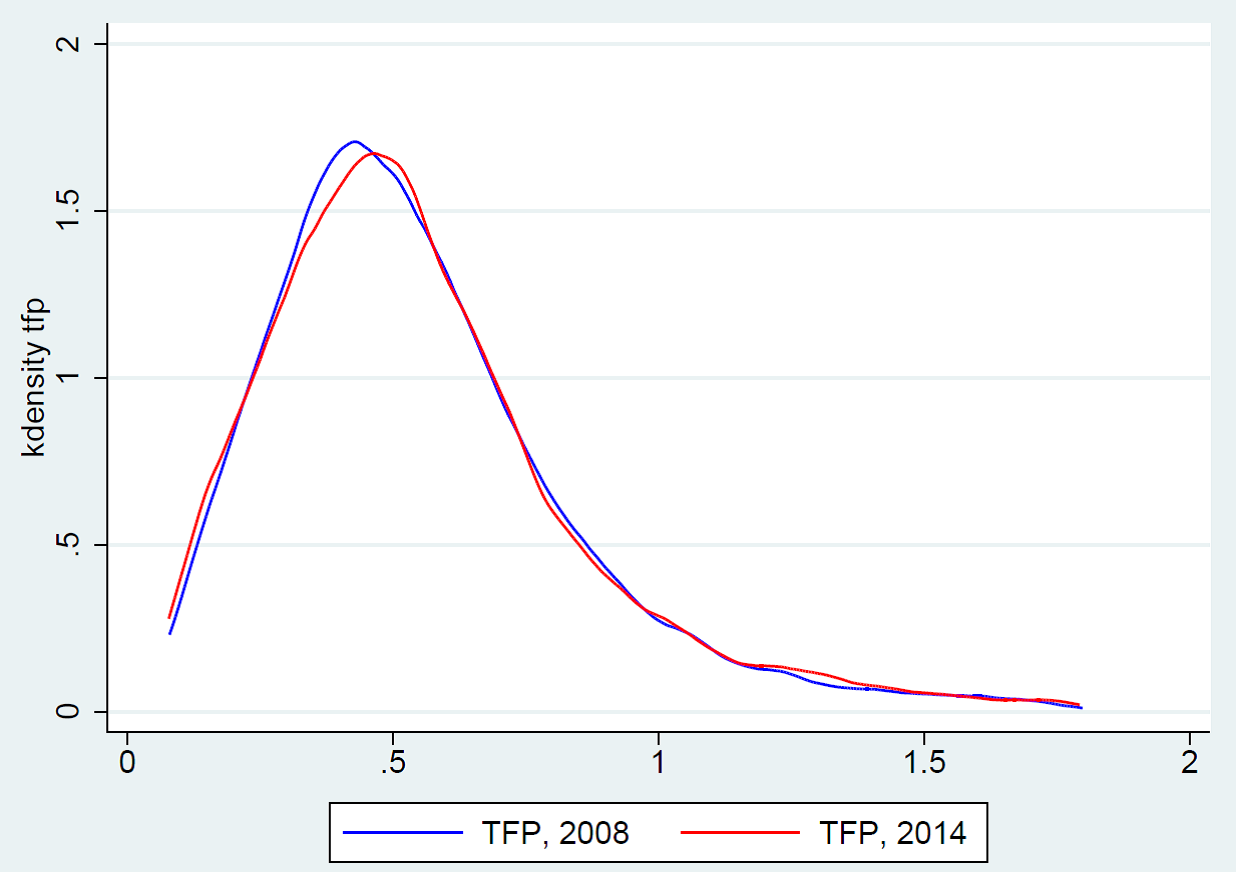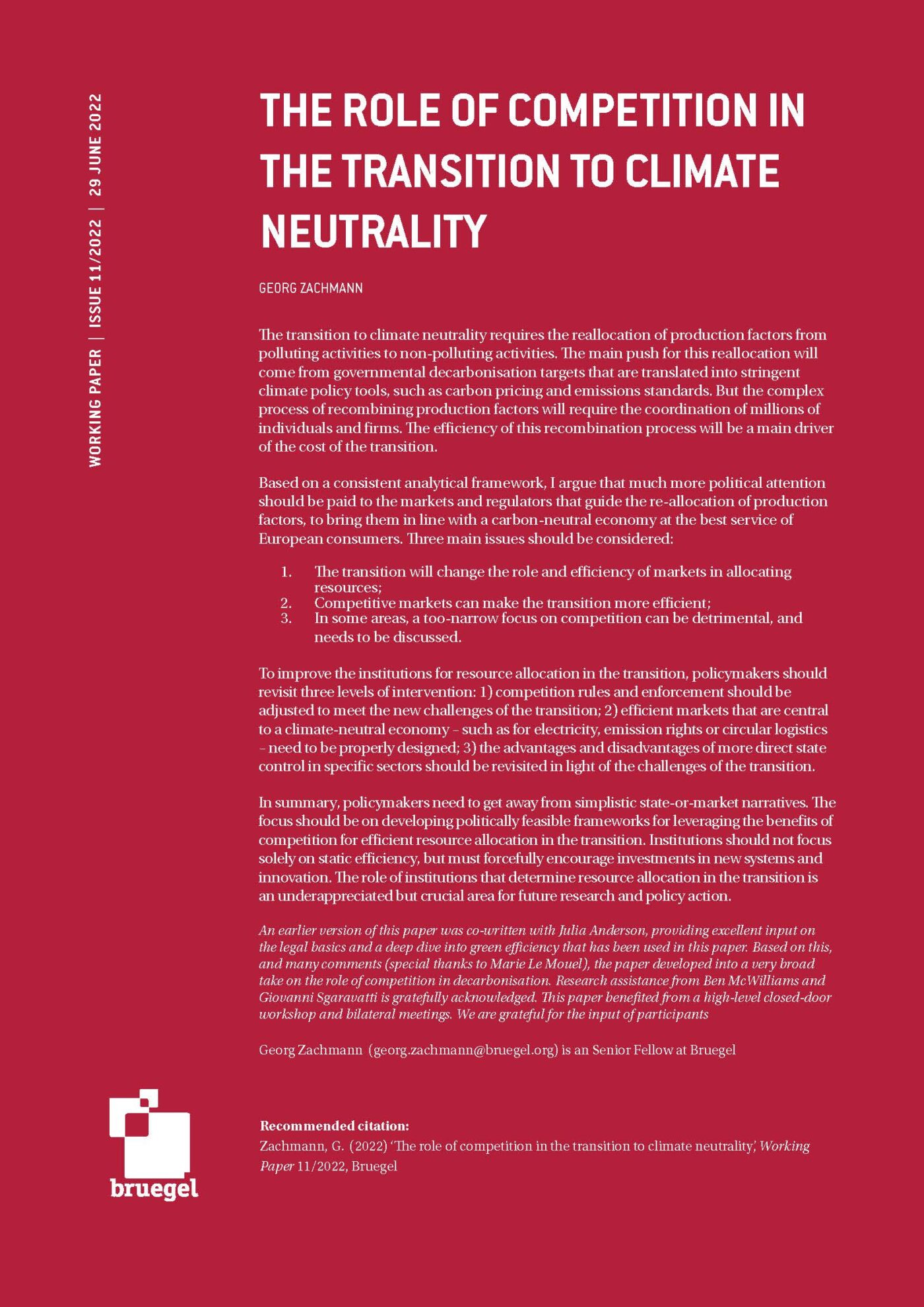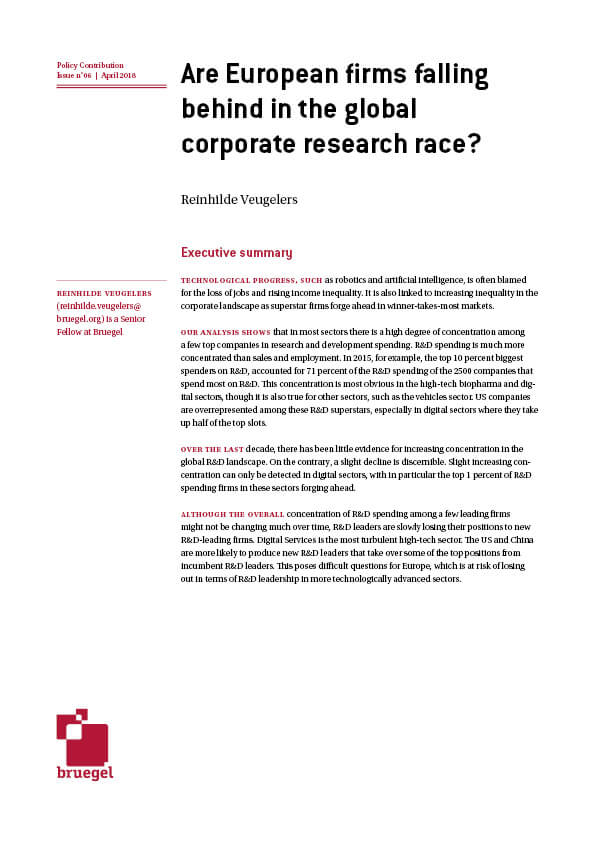Blog Post
Update of the EFIGE dataset
The EFIGE dataset on firms' competitivenes was recently updated by extending the panel-level balance sheet data until the year 2014. This post highlights the main features of the brand new data.
EFIGE (European Firms in a Global Economy: internal policies for external competitiveness) was a project, coordinated by Bruegel and carried out by several academic institutions between 2008 and 2012, which led to the creation of a firm-level database of manufacturing firms in a set of European countries. This database is also known as the EU-EFIGE/Bruegel-Unicredit dataset (EFIGE dataset hereafter).
The dataset includes data from a survey performed in early 2010 among firms in seven EU countries, namely Austria, France, Germany, Hungary, Italy, Spain and the United Kingdom. Information was mostly collected as a cross-section for the year 2008, with some questions regarding firms’ activity and behaviour in the period 2007-2009 and before the economic crisis of 2008. Moreover, survey data was integrated with balancesheet information from the Amadeus database, held by Bureau van Dijk, for the years 2001-2009.
Recently, Bruegel has worked on an update of the EFIGE dataset, by extending the panel-level balance sheet data until the year 2014. In what follows, we report the main features of the brand new data.
A longer time span
The main advantage of the updated dataset is that it allows firm-level data analysis over a long span of time. The time dimension of the panel has been extended to 14 years. While the (cross-sectional) survey data remain available only for 2008, the longer time span can for instance be used to compare firms’ performance before and after the crisis.
Regarding the coverage of the updated dataset, information for 14,667 out of the 14,759 European companies in the original sample is available for the period 2001-2014. The remaining 92 firms have leftthe Amadeus database; hence, for this small portion, the EFIGE set only contains balancesheet data until 2009.
The variables which have been extended until the year 2014 include assets and liabilities of firms, some relevant indicators of performance, like the EBIT and the liquidity ratio, and some information from the income statement of companies, such as the operating revenue and the net profit. The number of employees and the current status of firms( active or inactive) are also available.
Table 1displays the list ofall the updated balancesheet variables in EFIGE and the change from the year of the beginning of the crisis versus the last year observed in the updated EFIGE dataset, namely 2008 versus 2014. As we can see, average sales of companies in the sample have increased since the crisis, together with total assets held by firms. However, the average number of employees has fallen by around 10%.
A clearer picture of what happened to firms’ performance from 2008 until 2014 can obtained by looking at the evolution in their total factor productivity.
Figure 1: Total Factor Productivity (2008 vs. 2014)
Source: Authors’ Elaboration on Amadeus data.
Note: TFP computed according to Levinsohn Petrin (2003).

As we can see in Figure 1, the average TFP has increased over time, and the number of firms with a low TFP level seems to have decreased, since the slope of the Pareto distribution in 2014 is less steep compared to the year of the beginning of the crisis. However, the right tail of the distribution has not seen great changes, meaning that there has been little reallocation of market share towards the more efficient firms active in the manufacturing sector. It is important to mention that the availability of a longer time series offers more accurate results when dealing with structural estimations, TFP estimation being an example.
The effect of censoring
Table 2 compares the effect of censoring (see Section 6.1 of Altomonte and Aquilante, 2012) in 2009 and 2014 on data by country. The number of firms for which employment is capped is much smaller in 2014 than in 2009 (358 vs. 108). While the average employment of the restricted sample is very similar in the two years (50.5 vs. 51.8), the same variable shows large differences across countries (i.e. 109.82 vs. 87.8 for GER and 124.14 vs. 103 for the UK). However, censoring on size set at >500 employees does not significantly affect the overall representativeness of the sample (at least as far as extensive margins are concerned), as the original stratification has been designed over three size classes (10-49, 50-249, more than 249 employees) in which the largest class is a larger set with respect to our censored data (250 vs. 500 employees).
References
[1] C. Altomonte& G. Aquilante& G.I.P. Ottaviano (2012) The triggers of competitiveness: The EFIGE cross-country report, Blueprints, Bruegel, number 738, July.
[2] C. Altomonte & G. Aquilante (2012) The EU-EFIGE/Bruegel-Unicredit Dataset. Working Papers, Bruegel, number 753, October.
Republishing and referencing
Bruegel considers itself a public good and takes no institutional standpoint. Anyone is free to republish and/or quote this post without prior consent. Please provide a full reference, clearly stating Bruegel and the relevant author as the source, and include a prominent hyperlink to the original post.








